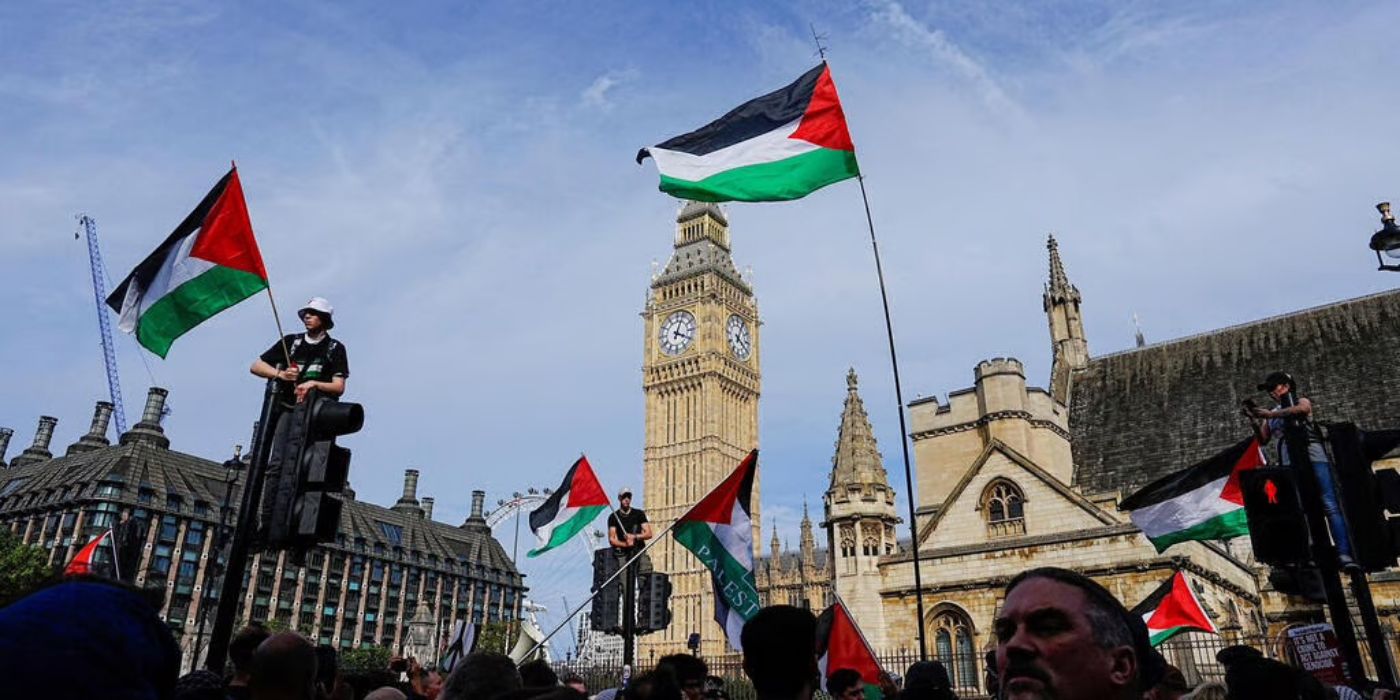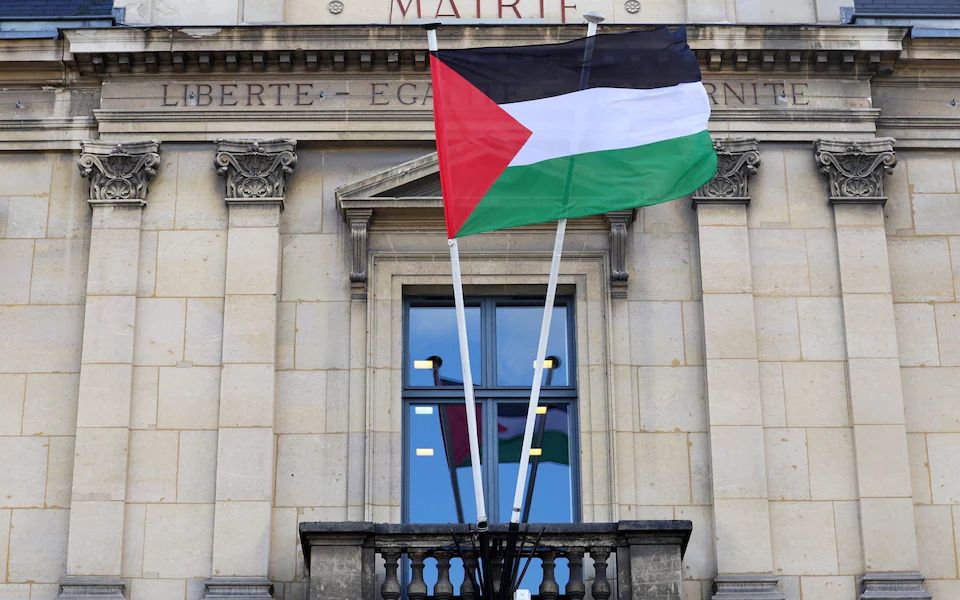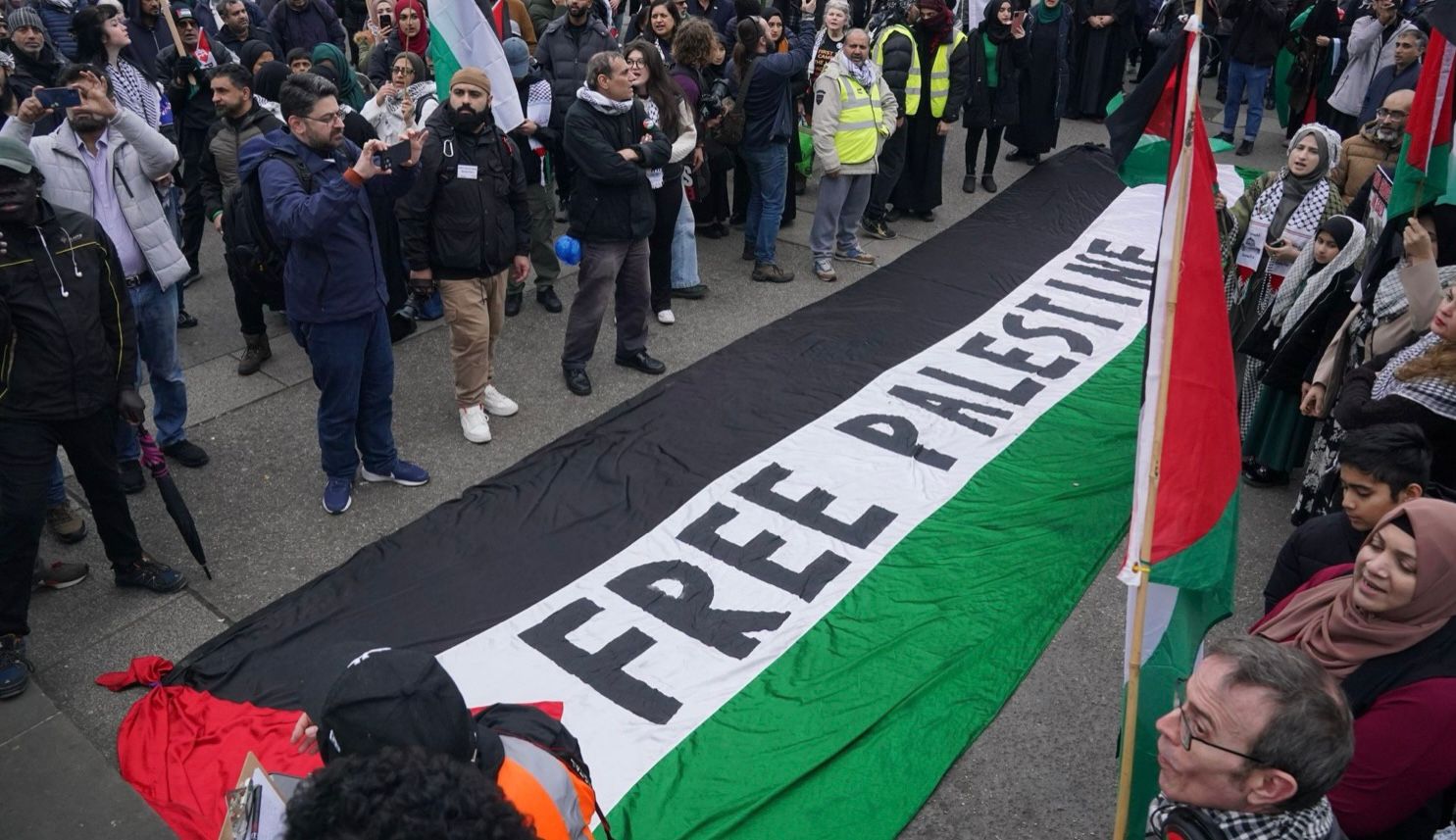

In a landmark shift in foreign policy, Prime Minister Keir Starmer has confirmed that the United Kingdom now recognises Palestine as an independent state, placing it among 151 nations worldwide. The move, announced ahead of the United Nations General Assembly, signals renewed efforts towards a two-state solution and has drawn both praise and sharp criticism across the political spectrum.
Prime Minister Starmer said:
“Today, to revive the hope of peace for the Palestinians and Israelis, and a two state solution, the United Kingdom formally recognises the State of Palestine.”
Starmer said the recognition was necessary to “keep alive” the possibility of peace between Israel and Palestine, stressing that the window for a viable two-state solution was narrowing rapidly. Foreign Secretary Yvette Cooper described the decision as a “responsible and timely step” to support Palestinian self-determination and long-term regional stability.
.jpeg)
The UK government will now refer to the West Bank and Gaza as “Palestine” across its official platforms. Embassy-level relations will be established, granting Palestinian diplomatic missions full privileges under international law. This recognition places the UK on equal diplomatic footing with Palestine, giving its representatives enhanced protections and a formal platform for negotiations and agreements.
The recognition marks a dramatic departure from the UK’s previous policy of withholding formal statehood until the conclusion of direct peace talks. British officials have suggested that delaying recognition was no longer credible after years of stalled negotiations and continuing violence in the region. By acting now, London hopes to inject new urgency into diplomatic efforts and signal that Palestinian aspirations for independence deserve genuine consideration.

Regional experts note that formal recognition strengthens Palestine’s ability to enter into treaties, secure international funding, and seek recourse through global institutions such as the International Criminal Court. It may also encourage European allies and other undecided nations to take similar steps, further isolating Israel’s hard-line factions that oppose the creation of a Palestinian state.
The announcement has sparked intense political debate within the UK. Supporters within Labour argue that recognition reaffirms Britain’s historic responsibility, given its role in the region during the British Mandate era. Critics, however, warn that the decision risks straining relations with Israel and its allies at a time when Middle Eastern tensions are already high.

Kemi Badenoch, the Conservative MP for Saffron Walden and a prominent critic of the government, condemned the decision on X (formerly Twitter), writing:
"Disastrous. Absoloutley disastrous. We will all rue the day this decision was made. Rewarding terrorism with no conditions whatsover put in place for Hamas."
.jpeg)
The recognition also carries legal and diplomatic implications. Palestine will now be able to send ambassadors to London with full diplomatic privileges and engage directly in bilateral negotiations on trade, security, and development aid. The UK will be expected to advocate for Palestinian inclusion in international bodies where observer status had previously limited participation.

For Palestinians, the move offers tangible hope that decades of occupation and stalled talks may finally see renewed progress. Palestinian Authority President Mahmoud Abbas welcomed the announcement as a “historic moment” and urged other Western nations to follow suit. Human rights groups have praised the step as long overdue, arguing that meaningful negotiations cannot occur without treating both sides as equals.
Israel’s government has expressed anger at the decision, with officials warning that it could embolden Hamas and complicate security operations. Israeli Prime Minister Benjamin Netanyahu called the recognition “a grave mistake” and urged the UK to reconsider. Despite the criticism, Starmer’s administration has insisted the decision does not preclude Britain from supporting Israel’s right to security or condemning terrorism.
The recognition matters because it reshapes the diplomatic landscape, adding weight to calls for a negotiated settlement and reinforcing the principle that Palestinians have the right to self-determination. While it does not guarantee immediate changes on the ground, it places pressure on all parties to return to meaningful dialogue and demonstrates that international patience for the status quo is wearing thin.
Starmer has made clear that the UK will continue to work with European and Middle Eastern partners to create conditions for renewed talks. He stressed that Britain’s recognition “is not an endorsement of any faction” but a reaffirmation of the need for a fair, lasting peace based on mutual recognition and security.

The move comes amid ongoing violence in Gaza, where civilian casualties and humanitarian challenges have deepened global concern. International leaders, including Emmanuel Macron and Olaf Scholz, have called for urgent reforms within the Palestinian Authority to ensure it can govern effectively and credibly represent its people.
For many Palestinians, UK recognition is more than symbolic. It signals that one of Europe’s most influential powers is willing to act, not just speak, in pursuit of peace. Whether this will lead to substantive progress remains uncertain, but for the first time in years, optimism among Palestinians has been visibly rekindled.